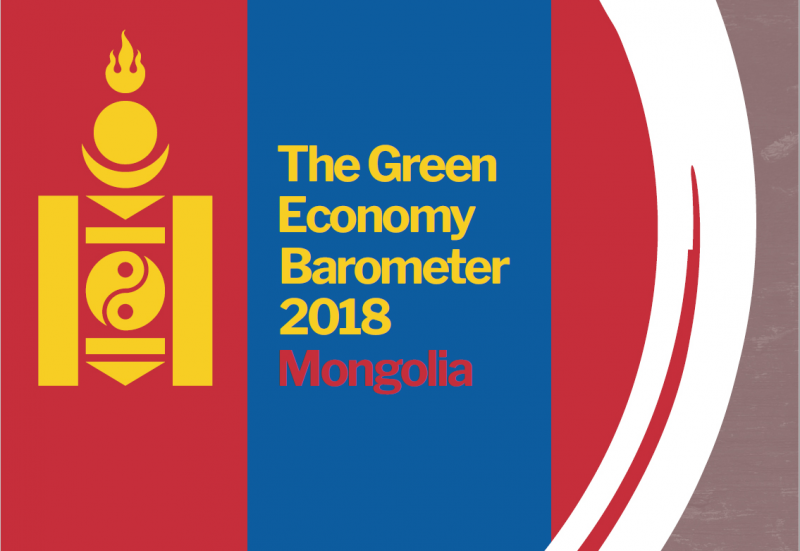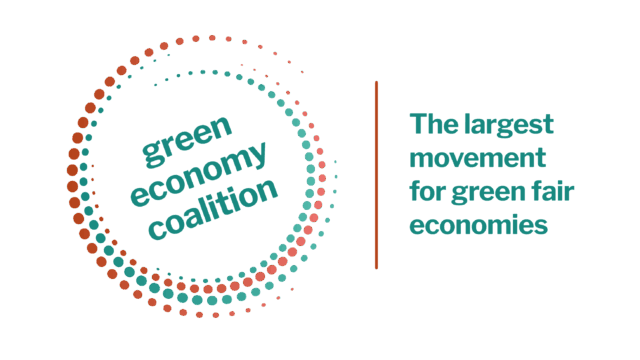Mongolia's green transition tracker in our new Barometer
New research examines policies to build a better future in the land of the eternal blue sky

For the first time, new research has quantified the opportunities of the green economy in Mongolia. If just 4% of GDP were invested for green development, by 2030 Mongolia could:
- generate 30% more real GDP per capita;
- accelerate poverty reduction by two thirds;
- cut unemployment by an additional 2%;
- and cut greenhouse gas emissions by almost 20%.
But the gap between ambition and achievement remains considerable. And Mongolian NGOs are rating Mongolia’s progress towards the green economy at only 3 out of 10.
Four years on from the June 2014 launch of the Mongolian Government’s National Green Development Policy (NGDP), the new research finds that such efforts have not been enough to address severe problems with air pollution, desertification, urbanisation, and over-reliance on volatile exports.
The Mongolia Green Economy Barometer 2018, published today by Mongolian thinktank the Economic Policy and Competitiveness Research Centre (EPCRC) and the Green Economy Coalition (GEC), suggests that in the long run, supporting green economic planning will offer a more sustainable path for the future.
Therefore the GEC is calling on the Mongolian Government to match rhetoric with reality, by committing 4% of Mongolian GDP to investment in green economic reform, sustainability programmes, and environmental protection.
“ Mongolia’s natural heritage is deteriorating rapidly under the pressure of industrialisation, and current gains in economic and social progress for ordinary Mongolians are at risk of reversal if the country does not choose a more sustainable path.”
“Mongolia is a good example of the crucial difference between legislative commitments on paper, and genuine action on the ground,” said Lakshmi Boojoo, who lead the research for the EPCRC.
“Mongolia’s natural heritage is deteriorating rapidly under the pressure of industrialisation, and current gains in economic and social progress for ordinary Mongolians are at risk of reversal if the country does not choose a more sustainable path.”
Mongolia’s mining industry drove explosive economic growth in the early 21st century. But a recent slump in global commodity prices led to an economic downturn highlighting the fragility of Mongolia’s progress to date. And the boom years left other legacies, too: some of the worst urban air pollution in the world, rapid desertification of the planet’s largest grassland ecosystem, and infrastructure failing to keep up with rapid urbanisation.
“Kicking the transition up a gear needs real awareness, engagement and commitment from the private sector, civil society, government agencies, and the wider public,” said Ms Boojoo. “Paper commitments aren’t enough – we need concrete outcomes.”
Oliver Greenfield, convenor of the Green Economy Coalition, said: “This report reveals the challenging status of Mongolian Green economy transition. The EPRC, with the support of the GEC, is keen to assist the Mongolian government and all other stakeholders to take the actions that are urgently needed.”
Notes to Editors
For more information or to arrange an interview please contact:
Lakshmi Boojoo lakshmi@ecrc.mn
Ben Martin ben.martin@greeneconomycoalition.org
The Green Economy Coalition (GEC) is the world’s largest movement for fair, green economies. The GEC brings together over 50 organisations including trade unions, environmental NGOs, development NGOs, business and international institutions, and has hubs in seven locations around the world. Greeneconomycoalition.org
The Economic Policy and Competitiveness Research Center (EPCRC) is a politically independent, non-profit Mongolian think-tank founded in 2010, dedicated to economic policy research and advocacy. Ecrc.mn
This project funded in collaboration with the European Union (DCI-ENV/2016/372-847)


